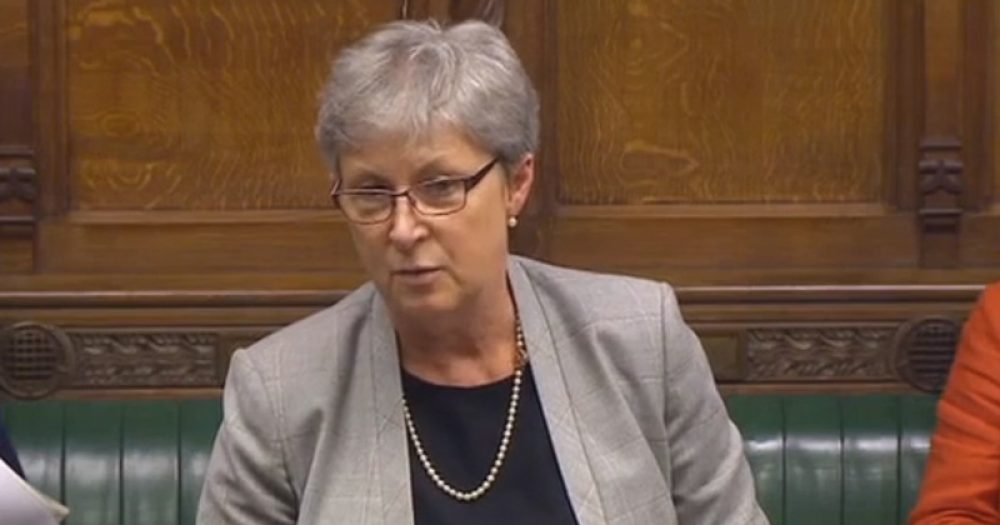Fierce criticism has flooded in from MPs concerned at the large number of colleges that have missed out on the new register of apprenticeship training providers.
The list of providers that will be eligible to deliver apprenticeships from May was published on March 14 by the Skills Funding Agency – however, a large number of major providers of apprenticeships somehow missed out, including at least 19 colleges with a combined current allocation of £44 million.
Britain’s second city was left without any colleges able to deliver apprenticeships from May at all, as all four Birmingham colleges failed to get on the register.
The shadow skills minister Gordon Marsden wrote to his ministerial counterpart Robert Halfon on Wednesday demanding answers about the process, which he said left providers with “excellent track records of delivering apprenticeships” off the list.

“A number of decisions on exclusions and indeed inclusions have aroused great concern,” he said, adding that the colleges that missed out had been “left without the ability to deliver new apprenticeships from May with very few answers as to why”.
This situation “raises key questions which need urgent answers to restore confidence” in the register and the application process, he said. He demanded to know the number of people at the SFA who had been involved in compiling the register, and the process for reconsidering applications by providers that had been turned down.
Speaking exclusively to FE Week, Mr Marsden said he understood many of the colleges had been “knocked back because of technical errors” in the applications. “All of this points to a very rushed and inadequately policed production of the register,” he insisted.
Last week, Keith Smith, the director of funding and programmes at the SFA, wrote on behalf of Mr Halfon to all the MPs with colleges in their constituency that had applied unsuccessfully to get on the register.
His letter, which was sent by email the day after the colleges learned their fate, is likely to raise eyebrows given the subsequent outcry over the register.
The absence of the four Birmingham colleges prompted two of the city’s MPs – Gisela Stuart (pictured above) and Jack Dromey – to raise questions in parliament during education questions on Monday. Ms Stuart, the MP for Birmingham Edgbaston, said their absence from the register was “destroying technical education for 16-year-olds in the West Midlands”.

And Mr Dromey, the MP for Birmingham Erdington, asked the minister to meet with the 10 MPs representing Britain’s second city to discuss the issue. Mr Dromey told FE Week that the decision to exclude the colleges “on the basis of the answer to one question is inexplicable”.
“The process is fundamentally flawed and it is essential that the SFA thinks again,” he said. Roger Godsiff, the MP for Birmingham Hall Green, said the process for applying to the register “smacked of a box-ticking exercise”.
He told FE Week that the Birmingham colleges had been “given to understand that the SFA would engage with them if their application was deficient in some form” but “all of them say that the SFA didn’t”.
Meanwhile, Richard Burden, the MP for Birmingham Northfield, said the omission was “shocking and out of order” – but added that it “can be nothing other than a mistake”. Sion Simon, the Labour candidate for mayor of the West Midlands, has launched a campaign to overturn the decision, after just three of the county’s 16 colleges made it onto the register.
“This decision will all but end technical education for young people in the West Midlands as we know it,” he said.
And Wakefield MP Mary Creagh has tabled an early-day motion calling on ministers to reconsider the application process, after Wakefield College failed to get on the register despite having an apprenticeship allocation of £2 million and a ‘good’ Ofsted rating.
“It’s clear that the government’s attempt to improve quality of providers has been a complete shambles,” she said. Meanwhile, Mark Dawe, AELP’s chief executive, insisted that a lot of “good quality” independent providers had also been left off the register.
“Why doesn’t the government trust its own regulator and inspectorate to determine what good quality is?” he asked. Mr Dawe said that providers had been told what sections they had failed on, but not the reasons why they had failed – which meant some were “at a bit of a loss to see what they have to change to get on”.
A Department for Education spokesperson said: “All those that applied to be on the register of training providers were given a clear set of criteria in order to receive funds for apprenticeship training, ensuring they are high quality and capable of delivering the training that young people deserve.
“We have also now reopened the register to give new organisations, and those who were not successful the first time, the chance to reapply.
“By regularly giving new providers a chance to get on the register, we are supporting diversity, quality and employer choice.”







well they should make sure and took the time to ensure their application was correct like rest of us who passed did. Bet theses colleges and big providers would not say anything if they passed and us smaller providers failed! Reapply and shut up.
You minnows will disappear as you no longer can claim for watching and recording you have to teach now under the 20% rule and let’s see who’s laughing in 12 months time. All those who ca n tick boxes can’t do the same for the new rules. Be afraid be very afraid.
This. Well said!
Indeed I think three things here are obvious
1 The Colleges did not understand the questions and indeed it was not tick box so they had to answer the question.
2 Often the Colleges think they will just get through because they are a College the procurement process is there to be adhered to.
3 Yes the feedback and interaction from the SFA is not to the standard but then do they have the staff to do the job.
All this moaning gets me angry when I see the huge number of good people losing jobs in private providers.
Part of any ‘fair’ procurement process involves asking all providers to articulate what they do and how well they do it. We all go through the same process. The questions asked were all fairly simple and any provider with the right process and systems in place should have been able to answer them. Many smaller non FE providers don’t have the luxury of dedicated expert functions to lead and support the bid process, or the cash to pay consultants.
FE Colleges already get a huge amount of help that other providers do not get in terms of guaranteed funding allocations and Infrastructure grants etc. Maybe the skills to compete have been lost through lack of use?
The SFA seem to see FE as funding and management vehicles for other providers. FE institutions are often considered as too big or valuable to fail, and there is huge political and lobbyist pressure on funders and regulatory bodies to give them an ‘easy ride’ that other providers do not get.
We have all seen certain FE Colleges get hammered for poor quality and financial irregularities, yet they are still in existence. Private providers, even the big ones in whom FE has a stake, cease to exist very quickly under exactly the same circumstances.
FE should not have an automatic right to exist or be delivering Apprenticeships, but often seems to expect just that. In fact FE is often not best placed to deliver. Understanding of the world of business, employer engagement and cultural alignment is often poor. Costs can be high. On campus delivery is not what many sectors want or need, so FE often has to make additional investment and mimic the delivery methods of private providers – then expects to be treated differently.
The system is already hugely biased in favour of FE, why expect a special pass to operate outside of your core business activity?
There are good and bad FE Colleges, just as there are good and bad private providers and charities.
So what if a few new startups have managed to claw their way onto a zero value gateway register based on the fact they know what they will do? What help would a new FE College set up in a new town get in comparison?
Hang on, FE is colleges and private training providers. Did you not know that?
Are you seriously saying this process is good
Grade 4s accepted
Insolvent accepted
No experience accepted oh and now need mandatory training
Robot marking
Really!
Ha ha. Hear hear!
Poor old colleges. How much of the £44m was sub-contracted out? That’s what I’d like to know. Colleges are nowhere near as good as Training Providers at delivering Apprenticeships. Why should they get all of the money just to cream off sub-contracting fees and falsely boost their success rates along the way. Maybe someone on the RoTAP panel has finally seen the light and used the opportunity to distribute the funding to the deliverers rather than the top-slicers.
Also how many of these hard-done-by colleges had no more than an Ofsted Grade 3 or even a Grade 4 for their Apprenticeship provision?
There are outstanding, good and not-so-good colleges. There are outstanding, good and not-so-good training providers. The RoATP is not yet a fit-for-purpose gatekeeper process for good quality apprenticeships. It is an inconsistently applied judgement of the completion of a number of questions that say very little about the calibre of an organisation’s credentials to deliver good quality apprenticeships. Consequently, we have seen someone get three of his companies through with no experience of delivering apprenticeships. We have also seen one company get through on the basis of a residential address, subsequently boasting of their pride on getting through and announcing that they now operate from an office. I would have been more interested to hear about their training facilities and teaching and learning resources. I am sick of seeing posts from people, presumably from private training providers, having a pot shot at colleges. Why aren’t you seeking to engage the government in a professional dialogue about the merits of private training providers. It is surely not necessary at all to diss colleges in order to promote your own merits. We are all important ingredients in this diverse further education sector. I have seen some fantastic partnerships between colleges and private training providers where they are complementing each others strengths. I cringe when I see some of the comments on FE Week articles which smack of chips on shoulders.
Behind the rhetoric and good intentions of RoATP to “improve choice” and “disrupt the market” there is a very serious flaw. The selection process was not robust. There was no evidence base to the answers, hence providers could write whatever they want and indeed many paid an external consultant to do it for them. The word count was extremely small; serious quality questions were reduced to a few sentences and if you didn’t hit the buzz words you are out. Contrast to Ofsted (now seemingly usurped by the SFA) who talk to learners, observe, check management systems and come to an informed decision. RoATP has reduced the very serious question of Apprenticeship quality to nothing more than a blind tick box exercise.
On the basis of the tick box (judged behind a veil of secrecy and against an unknown criteria) hundreds of jobs are now at risk. Very good providers embedded in the fabric of communities will become redundant. Colleges with huge delivery expertise and infrastructure (the only infrastructure for miles around) are now financially unviable. The whole College is unviable. I don’t believe for one second that Ministers truly understand just how flimsy the selection process was on which these very serious decisions have been taken and the consequences that will ensue. The SFA must act fast to rectify this situation before irreparable damage is done to the sector and significant time and money is wasted on the inevitable legal challenges.
Sorry Stuart, your response totals more than 2,000 characters (including spaces and punctuation) so we’ll have to disregard your answer and mark you as “FAIL” 🙂